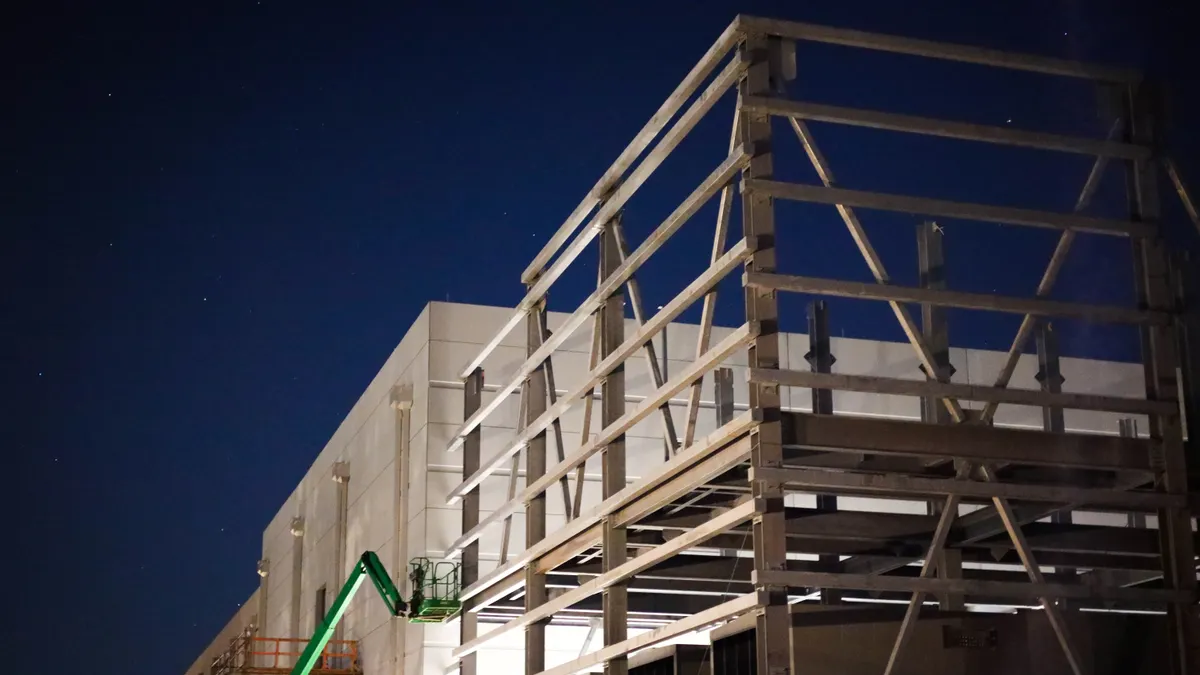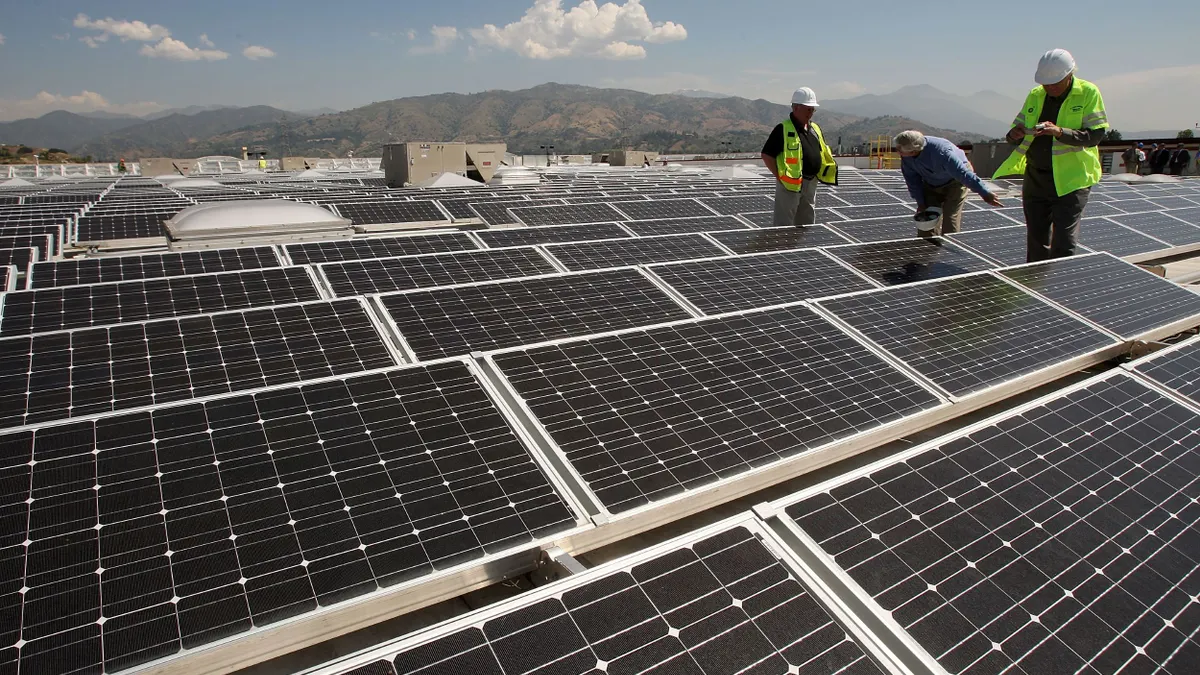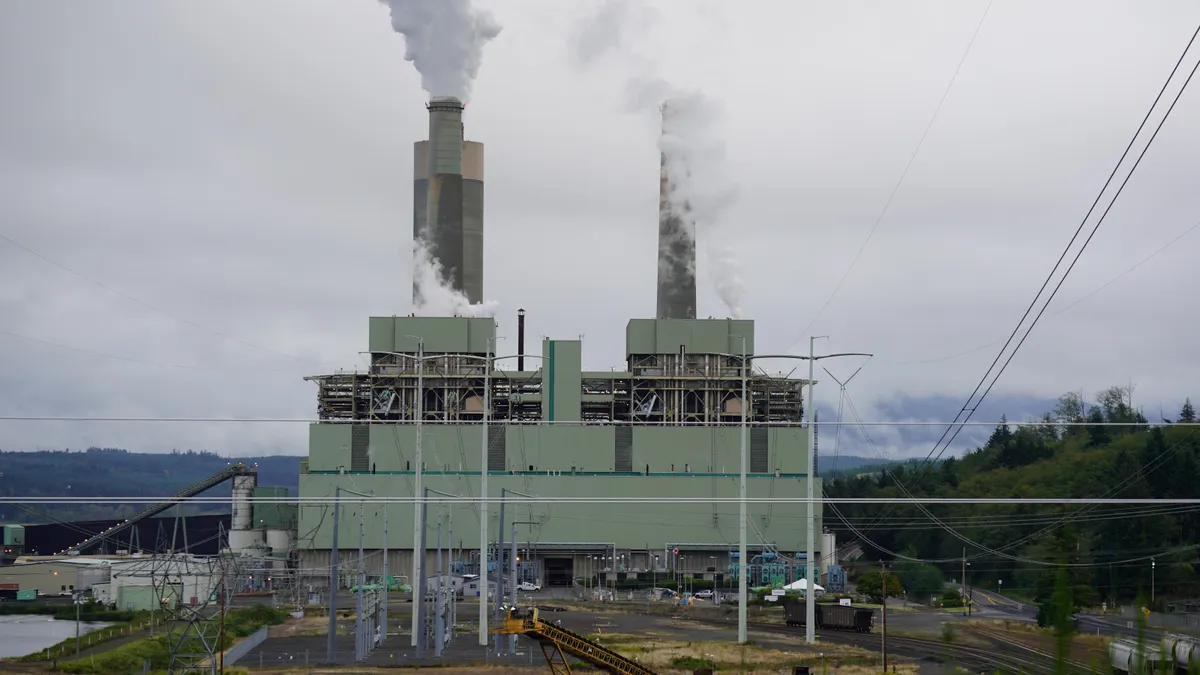In private equity, timing and leverage are everything.
That was proven again last week with Dynegy’s announcement that it would buy out Energy Capital Partners's (ECP) stake in Atlas Power, the joint venture the two firms formed in February to purchase 9,058 MW of power plants, mostly gas fired, from Engie.
For many, the deal was puzzling at first. ECP’s early exit from the joint venture meant that it would leave money on the table. Dynegy is paying a revised price of $375 million to buy out ECP’s 35% equity stake in the joint venture. Under the original terms of the deal, Dynegy would have had to pay $519 million to buy out ECP when the joint venture ended in 2021.
What changed to make ECP comfortable with foregoing $144 million? Short answer: The debt markets.
According to a person close to the transaction, the whole deal centered on the difficult debt market back when Dynegy was putting together its bid for the Engie assets.
Dynegy was looking at raising $1.5 billion to buy the assets, but was coming up short and facing the prospect of taking on $400 million of “ugly, high-yield debt,” with lots of strings attached.
That’s when ECP stepped in, offering to contribute $415 million in equity to the joint venture and extend Dynegy a $400 million bridge loan at 11%.
It was enough to get the deal done. With ECP’s backing, Dynegy submitted the winning bid for the Engie assets.
ECP now steps out of the deal and walks away with $225 million, after taking into account a commitment to buy $150 million of Dynegy shares at the close of the Engie acquisition, expected in early October. That was part of the original deal and remains intact.
The early exit cuts ECP’s possible losses and earns the private equity firm a rich payday — $225 million — for no money down.
ECP still has $150 million invested in Dynegy with a six month lock-up. Combined with an existing 5% stake in Dynegy, that will give ECP a 15% stake in Dynegy at about $11 a share.
So far, that is looking like a good investment. Dynegy’s stock was just under $10 a share when the Engie acquisition was announced and has risen as high as $21.51 since then and was trading at about $16 before the market opening on June 20.
Dynegy continues grwoth
Buying out ECP also accelerates Dynegy’s timeframe for expansion in the nation's organized energy markets — continuing its push for growth and greater efficiencies in its fleet.
From the outset, Dynegy said it intended to eventually take full control of the Engie assets. That happens sooner now, and at a lower transaction cost.
Without ECP, the total transaction value drops from $934 million to $750 million and will save Dynegy $40 million in annual interest payments.
Post acquisition, Dynegy also expects the simplified financial structure to increase its cash flow from the new assets and raise the potential for cost savings.
By taking advantage of improving capital markets, Dynegy will be able to reduce effective borrowing costs to about 4.5% from about 7%, analyst Julien Dumoulin-Smith at UBS wrote in a June 16 report. In addition, the post-announcement improvement in Dynegy’s share price makes the company comfortable issuing public equity, he said. Dumoulin-Smith expects Dynegy to fund the $375-million payment to ECP with proceeds from the sale of its sole New York asset, the 1,000-MW Independence plant.
“The significant improvement in the financial markets since announcing the transaction in February provided an excellent opportunity for us to approach ECP about an earlier timetable,” Robert Flexon, president and CEO of Dynegy said in a statement. “This transaction accelerates our company’s transformation, enabling us to increase our presence further in the most desirable markets with high quality assets.”
The Engie deal represents many aspects of Dynegy's overall corporate strategy. While low gas prices and stagnant load growth are pushing many utility-owned generators to downsize their fleets in the nation's organized electricity markets, Dynegy has shown an appetite for growth.
After emerging from bankruptcy proceedings in 2012, the company has aimed to survive in the competitive markets through scale and efficiency. In 2014, it bought 21 plants from Duke Energy and ECP in a separate deal that dropped its overhead costs by 34%.
Finalizing the deal for the Engie assets would give Dynegy 35 GW of cumulative generation, the Houston Chronicle reports, making it the second largest independent power producer in the country. Only NRG, with its 48 GW, would have more, and the deal would place Dynegy ahead of nuclear-heavy rival Exelon, which has 33 GW of capacity.
The deal would also cut debt payments and allow Dynegy to operate in its preferred markets. Last month, the company announced it would shutter more than 1.8 GW of coal capacity in MISO, citing a market structure that mixes regulated utility assets with plants operated by merchant generators.
“Mixing in those two models creates a real disadvantage for competitive generators,” Flexon said at a conference appearance last year. “You either need to be regulated company or an unregulated company. You can’t have a market that starts combining these things.”
The Engie deal would leave the company with nearly all its plants in the PJM and ERCOT markets, which the company says are more favorable to independent power producers.
"Once we have the [Engie] acquisition," Flexon told the Chronicle, "we'll have the right assets that are in the right places in the right markets."





















